Research

Research
Evaluation of implementation of AFPPD’s Strategic Plan
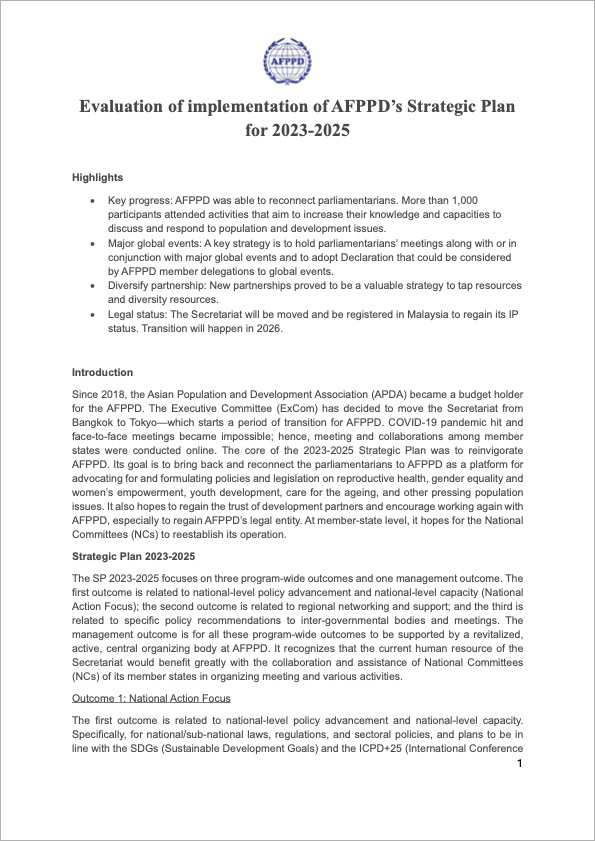
Introduction
Since 2018, the Asian Population and Development Association (APDA) became a budget holder for the AFPPD. The Executive Committee (ExCom) has decided to move the Secretariat from Bangkok to Tokyo—which starts a period of transition for AFPPD. COVID-19 pandemic hit and face-to-face meetings became impossible; hence, meeting and collaborations among member states were conducted online.
Strategic Plan
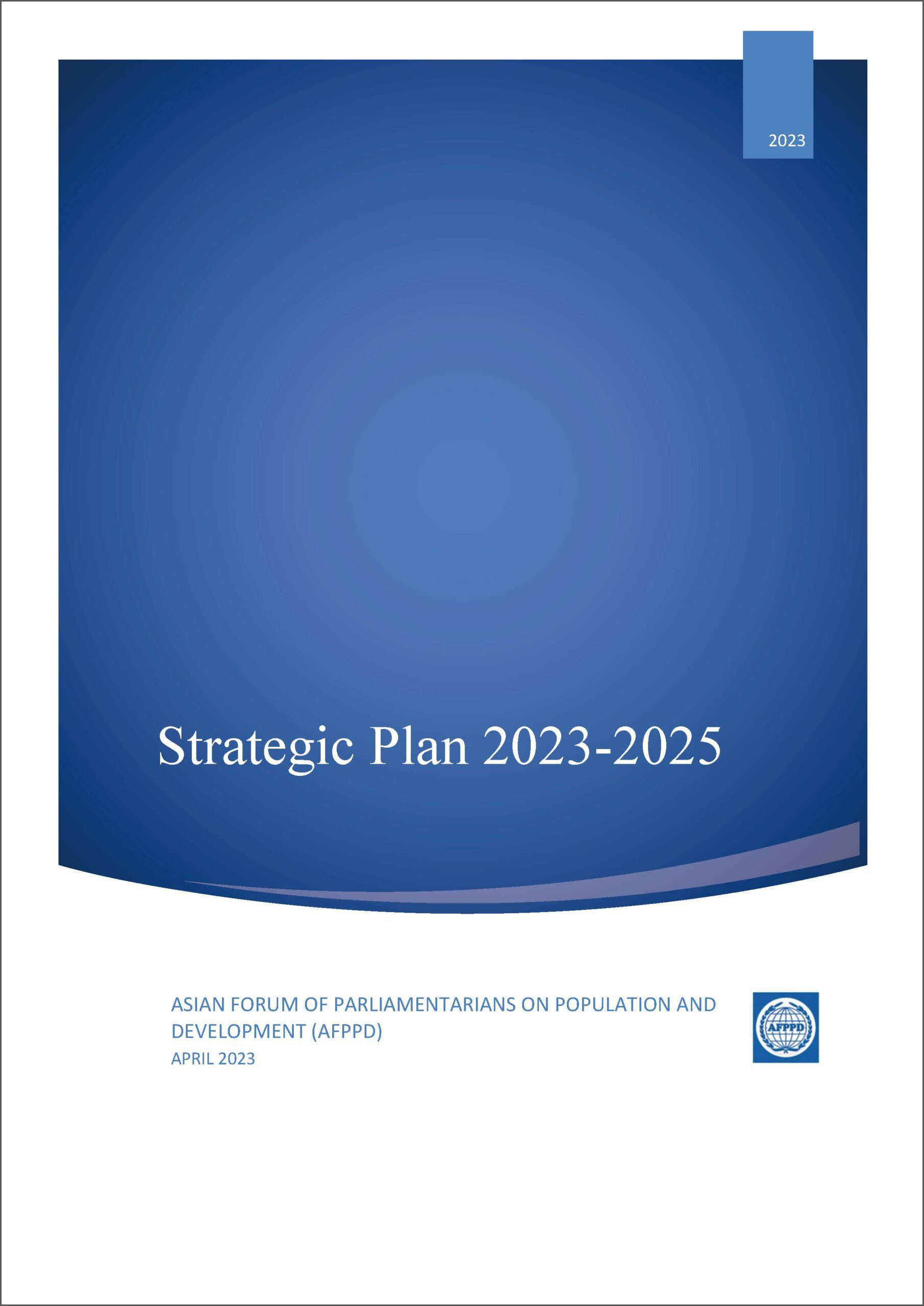
Introduction
The Asian Forum of Parliamentarians on Population and Development (AFPPD), established in 1981, is a network of parliamentarians organized to promote parliamentary involvement in addressing population issues in the Asia and the Pacific region.
Please refer to the PDF file below for details about
"ASIAN FORUM OF PARLIAMENTARIANS ON POPULATION AND DEVELOPMENT (AFPPD) APRIL 2023"
Resource Mobilization Plan
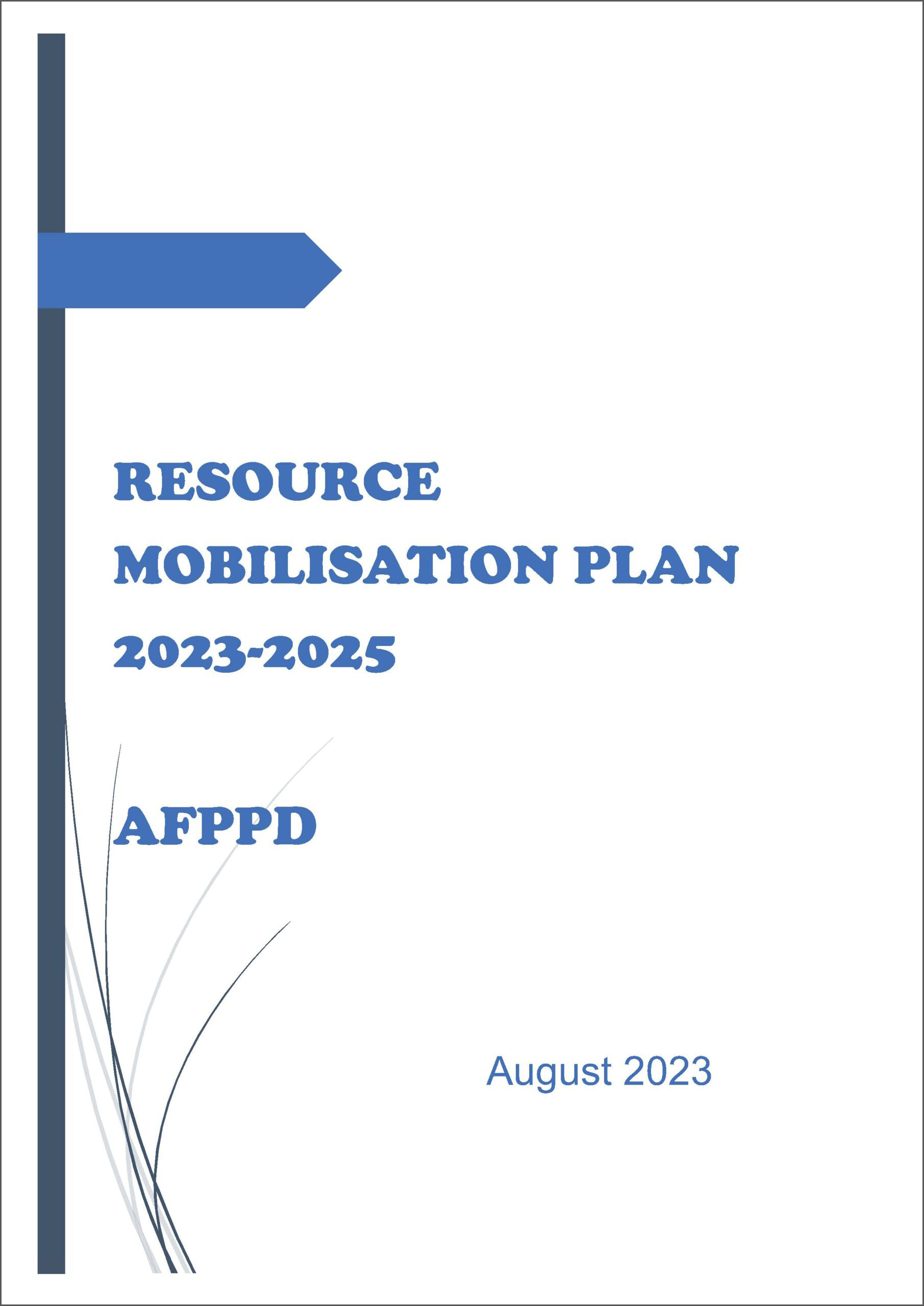
Introduction
The Asian Forum of Parliamentarians on Population and Development (AFPPD) is a regional nongovernmental organization. AFPPD serves as a coordinating body of 29 National Committees of Parliamentarians on Population and Development.
Please refer to the PDF file below for details about
"RESOURCE MOBILISATION PLAN 2023-2025 AFPPD August 2023"
Monitoring and Evaluation Plan
Mapping Legislation on Mandatory Reporting
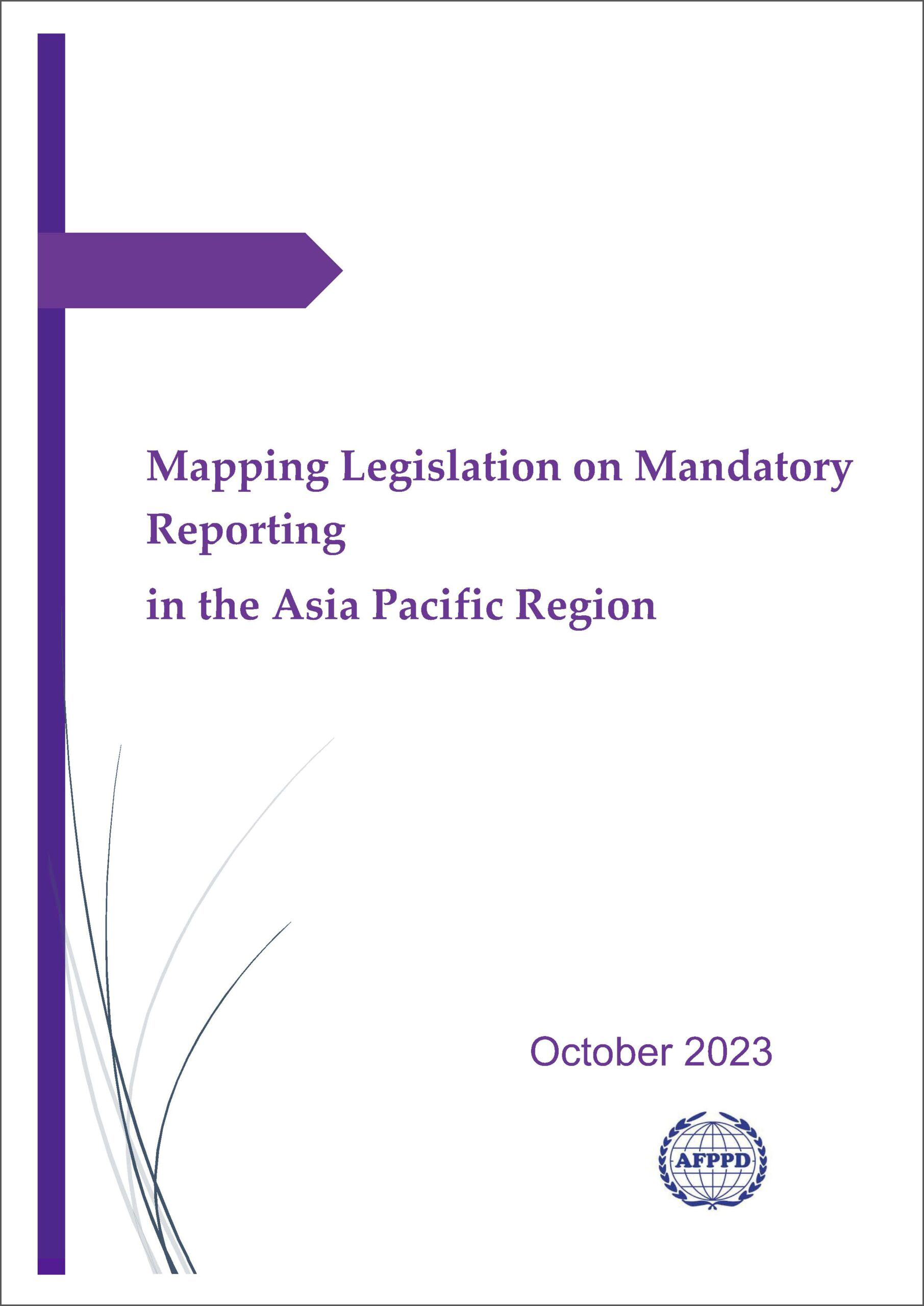
Introduction
Mandatory reporting is the obligation placed on adults, especially service providers such as medical professionals, to report an incident of violence to investigation authorities.
Please refer to the PDF file below for details about
"Mapping Legislation on Mandatory Reporting in the Asia Pacific Region November 2023"
Needs Assessment
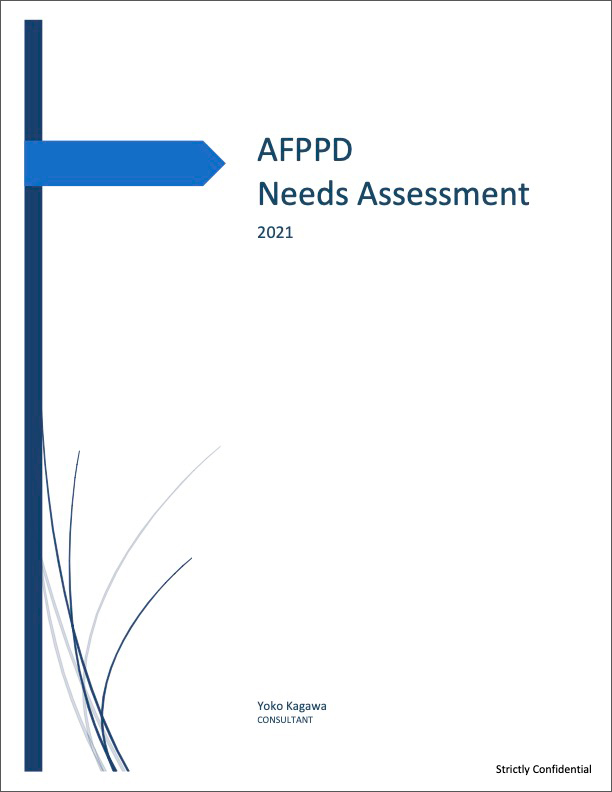
Introduction
Introduction of AFPPD Needs Assessment 2021.
Please refer to the PDF file below for details about
"AFPPD Needs Assessment 2021"
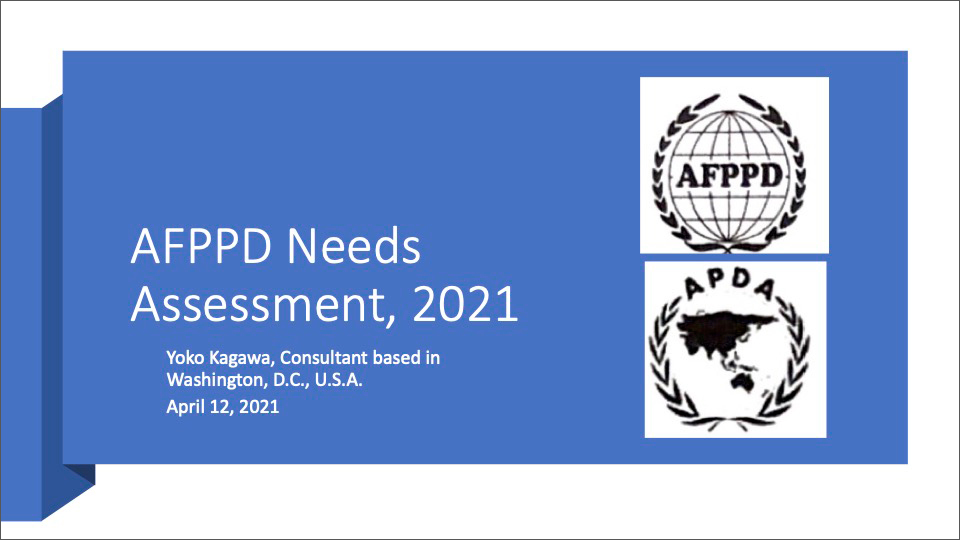
Needs Assessment for Executive Committee March 2021
Introduction of Needs Assessment for Executive Committee March 2021.
Research: Youth
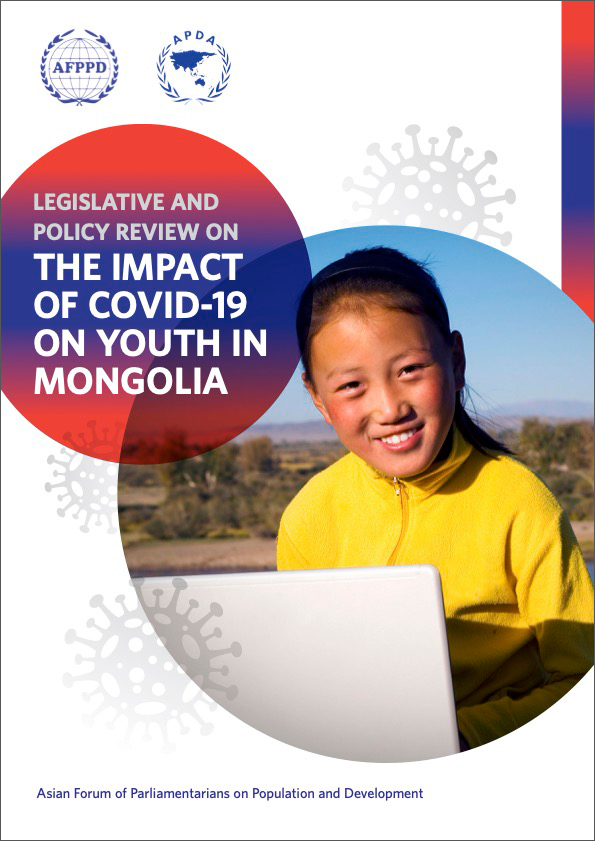
Mongolia ; March 2021
The purpose of this review is to map and assess the legal and policy impacts of COVID-19 on youth in Mongolia.
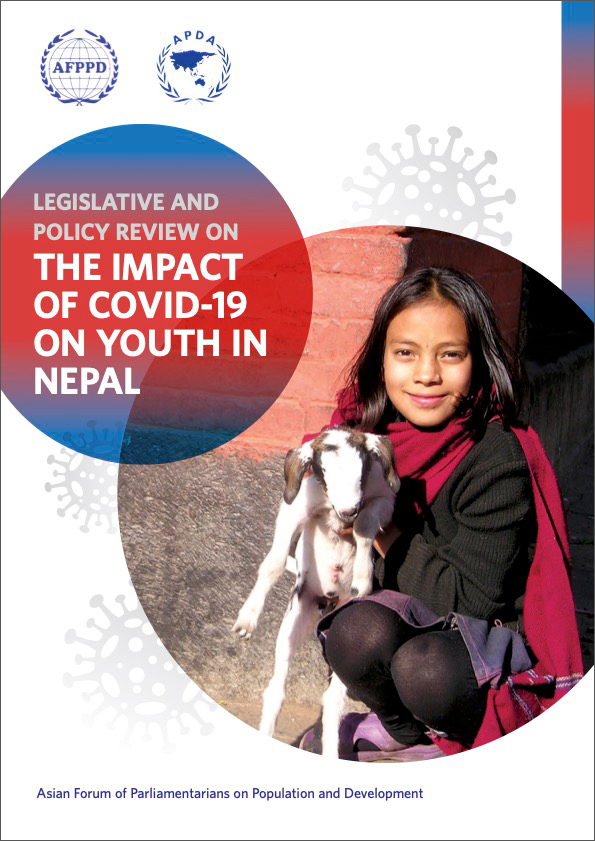
Nepal; March 2021
The overall objectives of this review are to map, understand and assess the legal and policy impacts of COVID 19 on youth in Nepal.
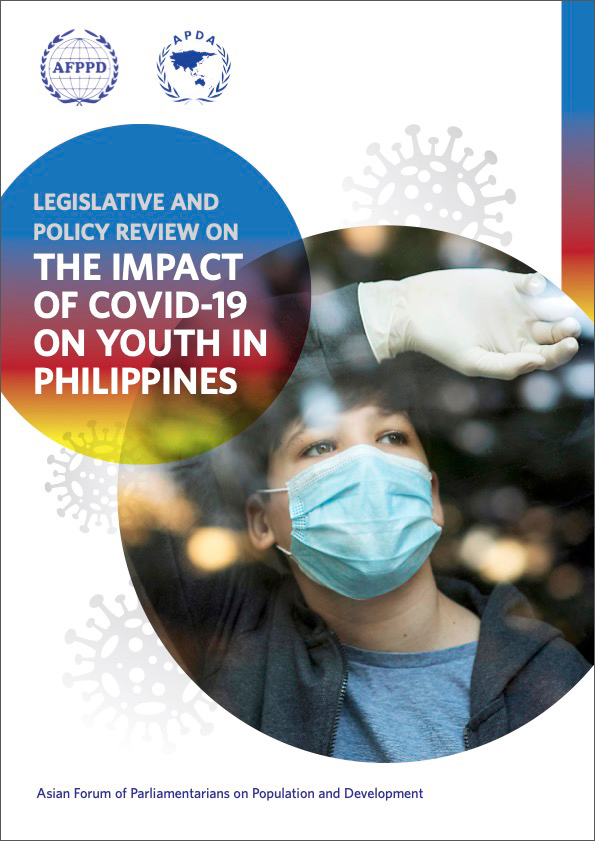
Philippines; March 2021
The Philippines reaffirmed its commitment to the goals of the International Conference on Population and Development (ICPD) at the Nairobi Summit in 2019. The country made four commitments:
• implement laws on reproductive and universal health care;
• intensify efforts to reach the demographic dividend;
• improve the economic condition of the country; and
• increase investment on reproductive health care and other interventions.
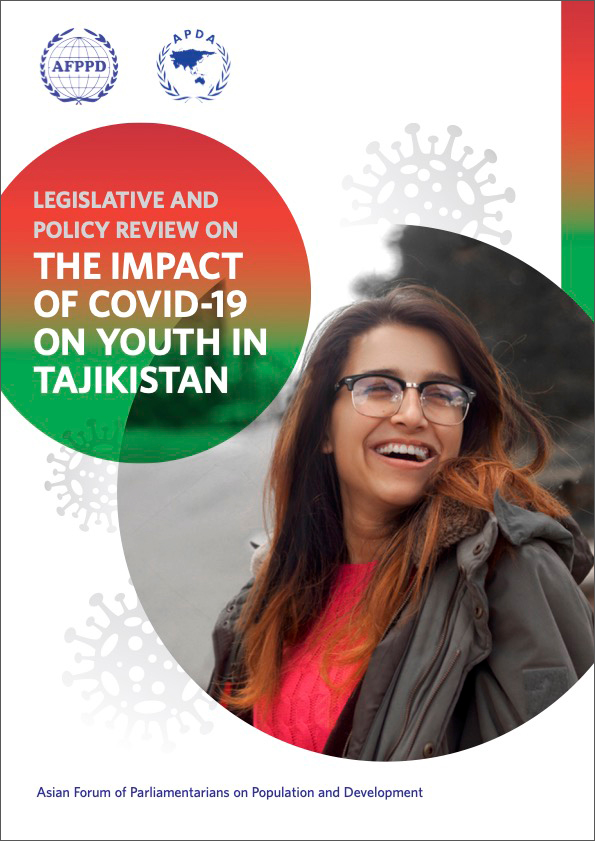
Tajikistan; March 2021
This review was developed based on an assessment of Tajikistan’s approach to youth policy and ensuring decent living conditions for young people, as well as an understanding of the general policies and legal acts adopted in Tajikistan in response to the COVID-19 pandemic.
Research: Ageing
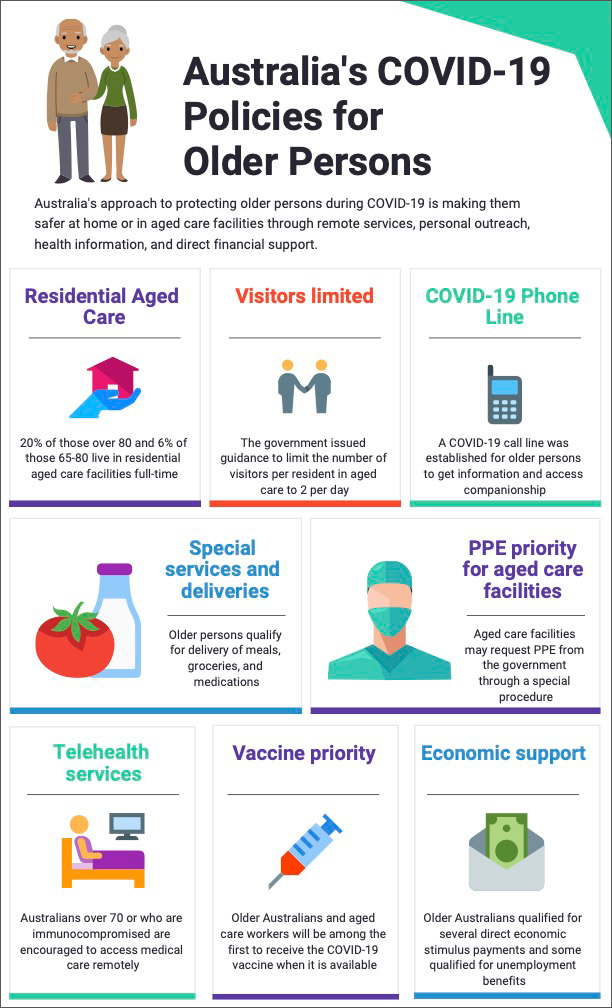
Australia; November, 2020
Australia's approach to protecting older persons during COVID-19 is making them safer at home or in aged care facilities through remote services, personal outreach, health information, and direct financial support.
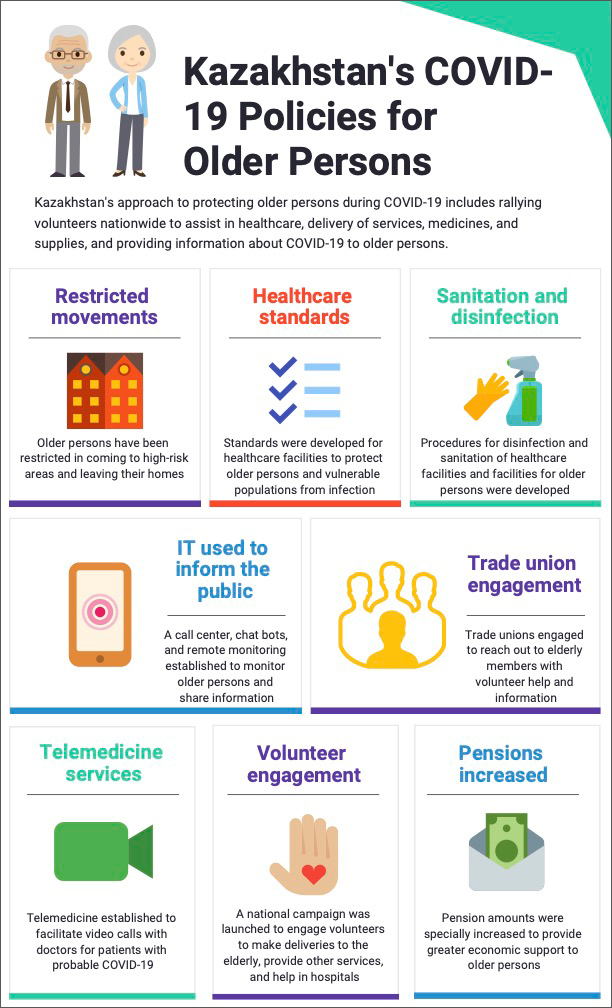
Kazakhstan; November, 2020
Kazakhstan's approach to protecting older persons during COVID-19 includes rallying volunteers nationwide to assist in healthcare, delivery of services, medicines, and supplies, and providing information about COVID-19 to older persons.
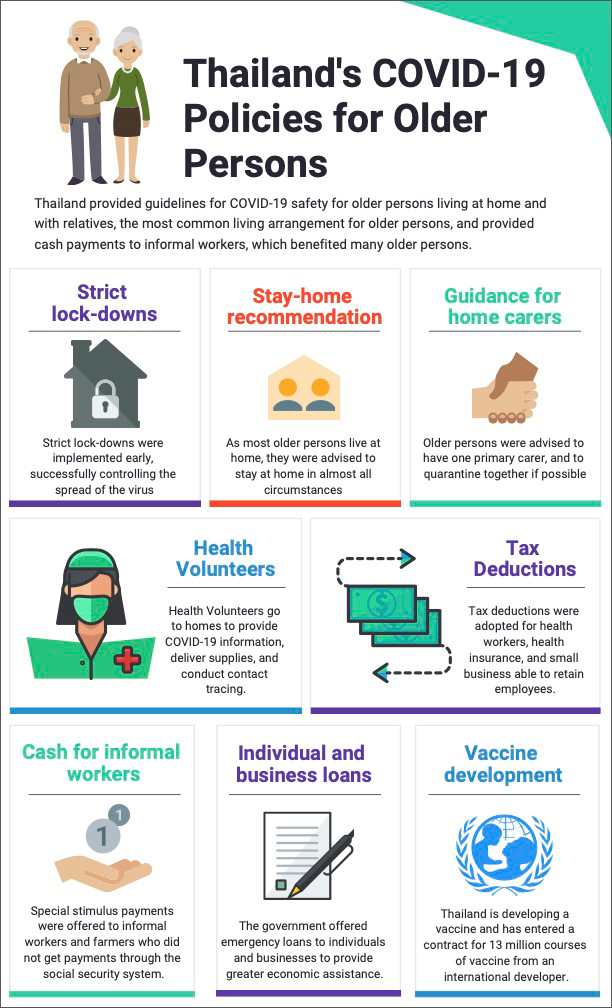
Thailand; November, 2020
Thailand provided guidelines for COVID-19 safety for older persons living at home and with relatives, the most common living arrangement for older persons, and provided cash payments to informal workers, which benefited many older persons.
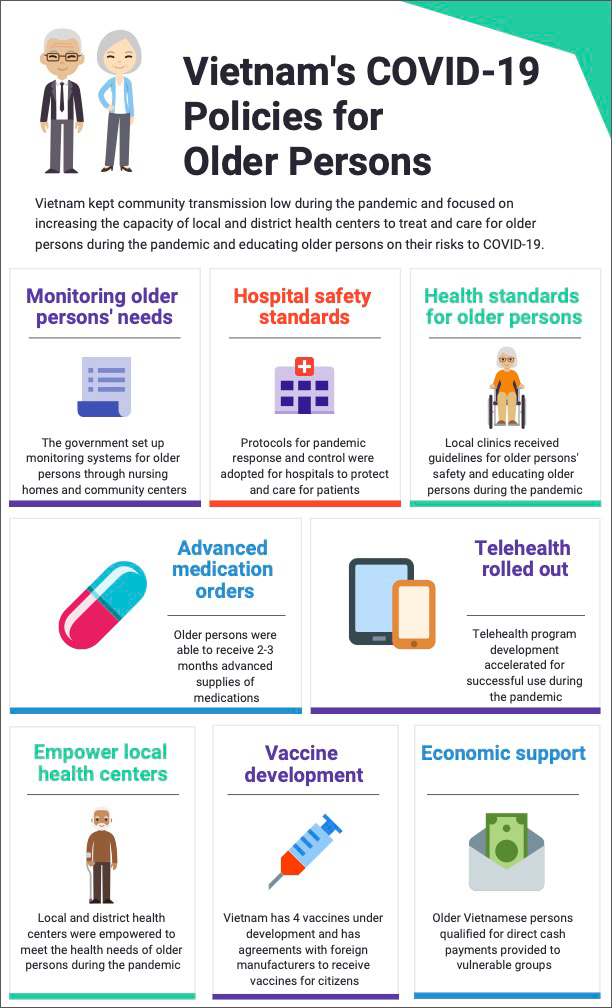
Vietnam; November, 2020
Vietnam kept community transmission low during the pandemic and focused on increasing the capacity of local and district health centers to treat and care for older persons during the pandemic and educating older persons on their risks to COVID-19.


